The average cost of Lung Cancer Treatment in London approximately starts from USD 25000
Treatment cost
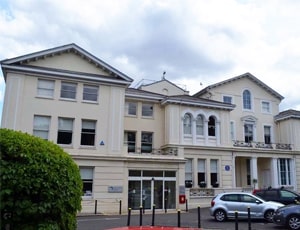
Apart from in-detail treatment procedures available, Cancer Centre London located in London, United Kingdom has a wide variety of facilities available for International Patients. Some of the facilities which are provided by them are Accommodation, Airport Transfer, Choice of Meals, Interpreter, SIM, TV inside room. Also listed below are some of the most prominent infrastructural details:
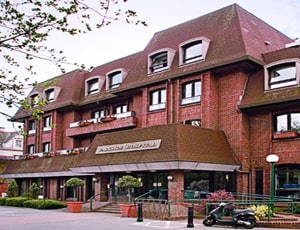
Apart from in-detail treatment procedures available, Parkside Private Hospital located in London, United Kingdom has a wide variety of facilities available for International Patients. Some of the facilities which are provided by them are Accommodation, Airport Transfer, Choice of Meals, Interpreter, SIM, TV inside room. Also listed below are some of the most prominent infrastructural details:
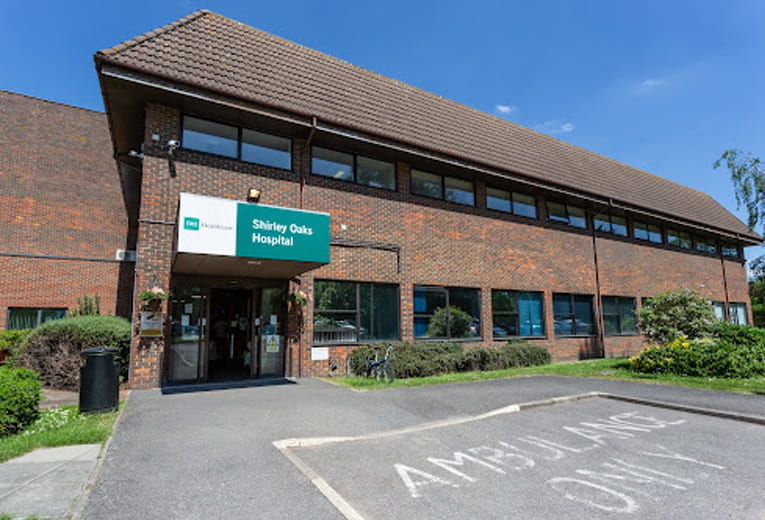
Shirley Oaks Hospital is a multispeciality hospital established in 1986 and is part of Circle Health Group. The hospital is located on the outskirts of Croydon in Shirley Oaks Village. The hospital offers a wide range of diagnostic and treatment services to patients allowing them to choose the services that they wish to avail in a hassle-free manner.
The hospital is a multispecialty facility that offers all types of treatments from 15+ specialties, including general medicine, ophthalmology, gastroenterology, and dermatology. Shirley Oaks Hospital is associated with 80+ consultants from within the UK.
The hospital offers services and treatments to patients under the age of 18 years and above.
Shirley Oaks Hospital offers a very warm and comfortable environment to the patients, from the moment they enter the building, whether for consultation or inpatient stay.

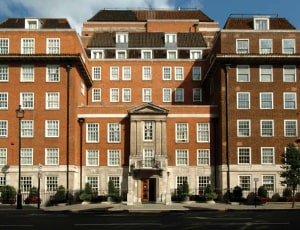
We, The London Clinic family, take pride in our reputation as a multi-disciplined healthcare facility. With skilled nurses and expert consultants, our medical teams are always focused to deliver the best individualized medical care. More than 1,000 nursing, clinical, and support staff are currently working with us to give our patients an extensive range of treatments. We use cutting-edge technologies to ensure a comprehensive range of healthcare services. Not only that, in order to make your stay with us comfortable enough, we equip our patient bedrooms with:
Patients from all over the world fly to us to get their procedures done by our specialist doctors, which is why we also provide our patient's concierge services. Our concierge services include:
The London Clinic has a zero-tolerance policy when it comes to hygiene and cleanliness. Our dedicated housekeeping team cleans every room every day between 8.00 am and 5.00 pm. They are also entitled to supply fresh towels every day and clean the rooms properly between patients.
We also have a day surgery unit based on the third floor at 20 Devonshire Place to make sure a hassle-free surgery as well as post-surgery care for our patients. Our cancer care unit at 22 Devonshire Place is also among our key services.
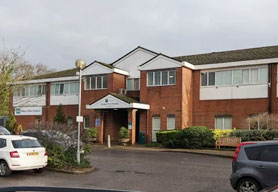
Bishops Wood Hospital is a 42 bedded acute care unit located in Middlesex, UK. Offering treatment and diagnostic services for more than 25 specialties, the hospital was established to offer the highest standard of care and services to patients from across the world. The hospital is a part of the private Circle Healthcare Group, which is a leading provider of state-of-the-art healthcare services and has multiple hospitals and clinics across the world.
The hospital has over 120 specialists and surgeons working with them to provide a variety of surgical and non-surgical treatments to people. The hospital is particularly known for a variety of orthopedic procedures that are carried out, including knee and hip surgery, hand and wrist surgery, foot and ankle surgery, and shoulder and elbow surgery. The hospital has been instrumental in slowly expanding its medical service and now offers treatments to patients requiring primary, secondary as well as tertiary care.
The hospital boasts of its team of medical and nursing staff, which is available 24 hours a day. Every medical specialist is a part of a multidisciplinary team, which includes specialists from the in-house radiology and physiotherapy department.
Facilities Provided:
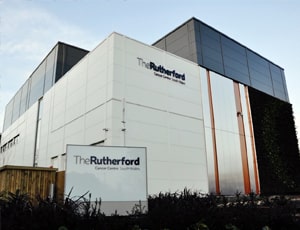
Apart from in-detail treatment procedures available, Rutherford Cancer Centre South Wales located in Wales, United Kingdom has a wide variety of facilities available for International Patients. Some of the facilities which are provided by them are Accommodation, Airport Transfer, Choice of Meals, Interpreter, SIM, TV inside room. Also listed below are some of the most prominent infrastructural details:
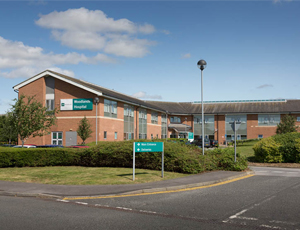
A 38-bedded hospital, Woodlands Hospital is supported by about 150 experienced doctors. It provides the highest standards of modern medical care and is BUPA accredited for its breast care services. All the staff at the hospital are totally committed to ensuring that patients are confident and comfortable with all aspects of their visit. It has resident medical officers available 24/7. Woodlands Hospital has an MRI scanner, an endoscopy unit, and a fully equipped gymnasium in addition to the two laminar flow theaters. It treats NHS-funded patients besides self-funding and insured patients. The hospital has access to the latest equipment and offers private facilities to patients in Richmond, Darlington, and Barnard Castle.
Lung cancer is an uncontrolled growth of cells that start off in the lungs. Usually, lung cancer starts in the cells that line the air passages. Instead of developing into healthy lung tissue, the cells divide rapidly and form tumours.
Lung cancer can grow and spread beyond the lung to reach other parts of the body through metastasis. Lung cancers can begin in any part of the lung, but 90 percent of lung cancers begin in the epithelial cells, which are the cells lining the larger and smaller airways also known as bronchi and bronchioles.
This is the reason why lung cancers are sometimes called bronchogenic cancers or bronchogenic carcinomas. Lung cancer is the most common cancer in the world, among both men and women. It is the leading cause of cancer deaths worldwide.
Long-term smoking is the main cause of lung cancer. After smoking, genetic factors and exposure to radon gas, asbestos, second-hand smoke or other forms of air pollution can also increase the risk of lung cancer.
There are two major types of lung cancers, based on the appearance of lung cancer cells under the microscope:
It is necessary to determine the stage of lung cancer by finding out how far cancer has spread, before initiating treatment of lung cancer.
The following are the four lung cancer stages of NSCLC:
After the determination of stage, treatment of lung cancer starts with choosing the best suitable option for the patient. However, there is usually no single treatment for lung cancer. So the patient often receives a combination of therapies and palliative care.
Lung cancer symptoms may vary, depending upon where and how widespread the tumour is. A person with lung cancer may have following lung cancer symptoms:
The treatment of lung cancer may include the following modalities:
Surgery is the best treatment if the lung cancer is in its early stages. In the early stages, it is possible to cure a patient completely by removing the tumor and the nearby lymph nodes. But after cancer has spread, it is nearly impossible to remove all of the cancer cells with the help of surgery.
There are some specific types of surgical procedures for different location and kinds of lung cancers, such as wedge resection of the lung (removal of a portion of one lobe), lobectomy (removal of one lobe), pneumonectomy (removal of an entire lung) and lymphadenectomy (removal of lymph nodes in the region of the lungs). After the surgery, margin tissues are further studied to see if cancer cells are present or not.
Lung cancer surgery is a major surgical procedure that requires hospitalization, general anesthesia, and follow-up care for a few weeks to several months. It also carries side effects like any other surgery, including complications related to bleeding, infection, and general anesthesia.
This treatment uses high-energy X-rays or other types of radiation to destroy or shrink lung cancer tumors. Radiation therapy can be given as a curative therapy, palliative therapy, or as adjuvant therapy combined with surgery or chemotherapy.
Radiation therapy damages the molecules that make up the cancer cells. However, it can damage the normal, healthy tissues. But nowadays improved technology can focus the radiation on precise locations for certain lengths of time, thus reducing the risk of damage to the surrounding healthy tissues.
Chemotherapy is a strong medication treatment, which interferes with the cell division process and damage proteins or DNA to reduce cancer cells. NSCLC and SCLC, both types of lung cancers can be treated with chemotherapy. Chemotherapy might be given in the form of pills, intravenous infusion, or as a combination of both.
However, drugs used in chemotherapy also kill normally dividing cells in the body that may lead to unpleasant side effects. Some of the common side effects of chemotherapy are vomiting, diarrhea, appetite loss, hair loss, fatigue, anemia, infections and more. These side effects may be felt temporarily during treatment, and several drugs exist to help patients cope with the symptoms.
Drugs used in this treatment work by targeting specific abnormalities in the cancer cells. Some of the drugs in this treatment can also strengthen the activity of the immune system against cancer cells. But mostly this treatment only works in people whose cancer cells show certain genetic mutations.
Ask your healthcare adviser for the best multiple options and choose the one that meets your expectations
While depending upon a range of factors, the minimum cost for Lung Cancer Treatment in London is $25000. While there are wide range of hospitals offering Lung Cancer Treatmentation, international patients should always seek JCI-Certified Hospitals in London for the best results.
Different hospitals have different pricing policy when it comes to the cost of Lung Cancer Treatment in London. The Lung Cancer Treatment package cost usually includes all the expenses related to pre and post surgery expenses of the patient. The comprehensive Lung Cancer Treatment package cost includes the cost of investigations, surgery, medicines and consumables. A prolonged hospital stay due to delayed recovery, new diagnosis and complications after surgery may increase the cost of Lung Cancer Treatment in London.
There are many hospitals that perform Lung Cancer Treatment in London. The following are some of the most renowned hospitals for Lung Cancer Treatment in London:
While the speed of recovery may vary from patient to patient, they are still required to stay for about 40 days after discharge. This is important to ensure that the surgery was successful. During this time, control and follow-up tests take place to check for medical fitness.
While London is considered to be one of the best destinations for Lung Cancer Treatment owing to the standard of Hospitals, and expertise of doctors However, there are other cities as mentioned below that are popular for Lung Cancer Treatment as well:
Apart from the Lung Cancer Treatment cost, there are a few other daily charges that the patient may have to pay. These charges may vary from 55 USD per person.
After Lung Cancer Treatment surgery, the patient is supposed to stay for about 5 Days in the hospital for recovery and monitoring. The doctors team review the patient's recovery during this time with the help of blood tests and imaging scans. Once they feel that everything is on track, the patient is discharged.
There are about 4 Hospitals Lung Cancer Treatment hospitals in London that are best known for their services. These hospitals have the required expertise as well as infrastructure available to handly patients who need Lung Cancer Treatment. Such hospitals follow all legal protocols and guidelines as specified by the local medical affairs body when it comes to the treatment of international patients.
Some of the most sought after doctors for Lung Cancer Treatment in London are: